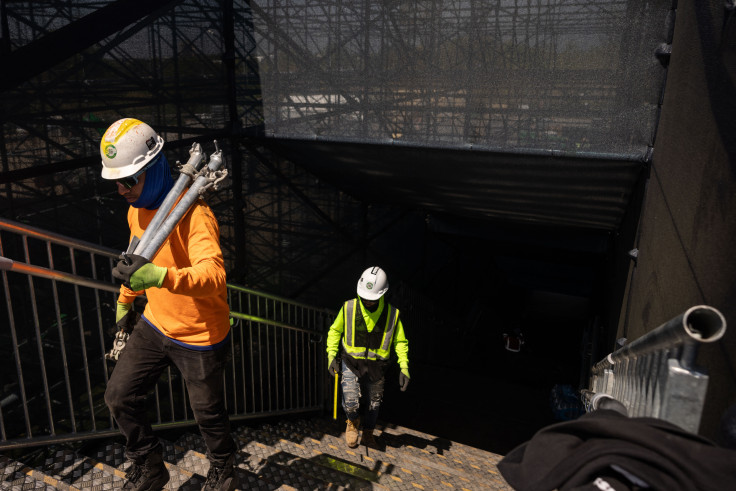Construction Experts Warn That Mass Deportations Could Cripple Industry, Raise Housing Prices
Foreign-born workers, make up 30% of the workforce in key trade roles linked to building, says Jim Tobin, CEO of the National Association of Home Builders

A recent study by the National Foundation for American Policy revealed that, by 2052, the only source of labor force growth in the U.S. will come from immigrant workers. In fact, in the last 6 years, immigrants and their children have added 5.4 million workers, resulting in a net increase of over four million in the labor force.
In the case of Latinos specifically, they are impacting the country's GDP to the tune of trillions thanks to their impact in industries such as manufacturing, public administration, accommodation and food services and transportation
However, insiders in these industries are sounding off the alarms as Republican candidate Donald Trump's mass deportation proposal could signify massive economic consequences for the country that go well beyond the plan's potentially huge cost. A new NBC News report, provides the perfect example, as it takes a deep look into the possible effects of large-scale deportations on the country's construction industry.

Jim Tobin, CEO of the National Association of Home Builders warned the news outlet of the risks of deporting foreign-born workers, many of whom are undocumented and make up 30% of the workforce in key trade roles such as carpentry, plastering, masonry and electrical roles. "It would be detrimental to the construction industry and our labor supply and exacerbate our housing affordability problems," said Tobin
Stan Marek, CEO of the Marek Family of Companies, a Texas-based specialty subcontracting firm, echoed Tobin's concerns, adding:
"We need them. They're building our houses — have been for 30 years. Losing the workers would devastate our companies, our industry and our economy."
The construction sector, which is currently looking to fill 370,000 open positions, is particularly reliant on undocumented workers, with an estimated 1.5 million employed, according to Pew Research Center data. This represents about 13% of the construction workforce, a higher percentage than in other industries.

Nevertheless, as his campaign has progressed, Trump has chosen to provide a different take on the impact of undocumented immigrants on the construction industry. During a speech to the Economic Club of New York in early September, the former president linked unlawful immigration to increased housing costs, claiming that, if elected, his deportation plan would free up homes for U.S. citizens and lower prices, ideas with which few economists have agreed.
The report by NBC News offered a counterpoint to Trump's claims, by citing evidence that immigration has historically helped lower costs in construction:
"There is evidence that foreign-born construction workers help keep the housing market in check. An analysis released in December 2022 by the George W. Bush Institute and Southern Methodist University found U.S. metro areas with the fastest-growing immigrant populations had the lowest building costs."
As Brent Taylor, owner of Tampa-based business which hires subcontractors, said of the potential impact of deportations on the construction industry: "either I make half as much money or I up my prices. And who ultimately pays for that? The homeowner."
© Latin Times. All rights reserved. Do not reproduce without permission.





















